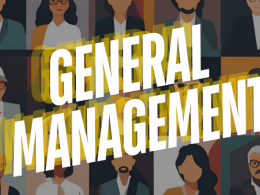In today’s rapidly changing business environment, innovation and adaptability are essential for any organization aiming to stay competitive and achieve sustainable growth. Leaders play a crucial role in driving this innovation by embracing change, anticipating trends, and fostering a culture of forward-thinking within their teams. This approach is distinct from traditional management, which typically focuses on stability and predictability. For leaders, however, success hinges on an ability to influence, inspire, and adapt proactively.
The Evolving Role of Leadership in General Management
Traditional Management vs. Modern Leadership
Traditional management practices prioritize control, consistency, and maintaining the status quo, often focusing on day-to-day operations and minimizing risks. Leadership, however, is increasingly about innovation and change. Leaders today are expected to go beyond supervision and actively shape the future of the organization.
The Power of Innovation as a Competitive Differentiator
Innovation is now a fundamental differentiator in the competitive landscape. Organizations that foster innovation tend to outperform those that don’t, as they are more agile and prepared to meet new challenges. In this environment, leaders evolve into agents of change, capable of exploring new avenues for growth rather than merely upholding existing structures.
How Leaders Drive Sustainable Growth Through Innovation
Anticipating Emerging Trends
To maintain relevance, leaders must be attuned to emerging trends in artificial intelligence, digital transformation, and sustainability. By asking critical questions like “What’s next?” and “What else?” leaders can effectively anticipate and prepare for future shifts in the business landscape. This approach ensures they aren’t just reacting to changes but are positioned ahead of them, driving sustainable growth and resilience.
Creating a Culture of Continuous Improvement
An essential aspect of leadership in general management is creating a culture of continuous improvement. Leaders who prioritize innovation encourage teams to think outside the box, challenge traditional approaches, and experiment with new ideas. This culture not only enhances engagement and morale but also positions the organization as a forward-thinking, adaptable entity.

Navigating the Emerging Growth Gap
Organizations today are confronted with the “emerging growth gap”—the difference between an organization’s current growth rate and future growth expectations. As markets evolve, customer preferences change, and technological advances accelerate, this gap widens for companies that fail to innovate. Effective leaders bridge this gap by championing initiatives that align with long-term objectives and market needs.
The Role of AI and Digital Transformation in Closing the Gap
Artificial intelligence and digital transformation offer leaders tools to enhance operational efficiency and uncover new business opportunities. Leaders who embrace these technologies can make data-driven decisions, streamline processes, and offer personalized experiences to customers. This proactive approach to AI enables leaders to keep pace with competitors while maintaining an agile organization that is adaptable to future changes.
Embracing Sustainability as a Core Leadership Responsibility
Sustainability has moved from a niche consideration to a core strategic priority for many organizations. Consumers and stakeholders increasingly expect businesses to take an active role in environmental responsibility and social impact. Leaders are at the forefront of this movement, working to integrate sustainability into company values, operations, and products.
Building a Sustainable Future Through Leadership
Forward-thinking leaders recognize that sustainability is not just a trend but a necessity. By embedding sustainability into their organizations’ cultures and processes, they reduce risks and build long-term value. Leaders drive these initiatives by setting ambitious sustainability targets, partnering with eco-friendly suppliers, and encouraging employees to adopt sustainable practices in their roles.

General Management and Leadership: Building the Future
Effective leadership in general management is no longer solely about optimizing internal processes; it’s about preparing the organization for what lies ahead. By embracing innovation, focusing on sustainability, and harnessing digital transformation, leaders create a robust foundation for enduring success.
Conclusion: The Road Ahead
Leaders today must go beyond conventional boundaries to inspire innovation and guide organizations through change. Those who do will lead their organizations into a future defined by adaptability, resilience, and sustained growth.
Key Takeaways for Effective Leadership
- Embrace Innovation: Leaders must foster a culture of continuous improvement and exploration.
- Leverage Technology: Staying ahead of technological trends ensures competitive advantage.
- Prioritize Sustainability: Long-term success increasingly depends on sustainable practices.
By focusing on these principles, leaders can help their organizations navigate a rapidly evolving business landscape and thrive in the face of constant change.
 Pin
PinMaster leadership principles, strategic thinking, and management at one of India’s premier business schools – XLRI’s Executive Development Program in General Management and attain Executive Alumni status.






